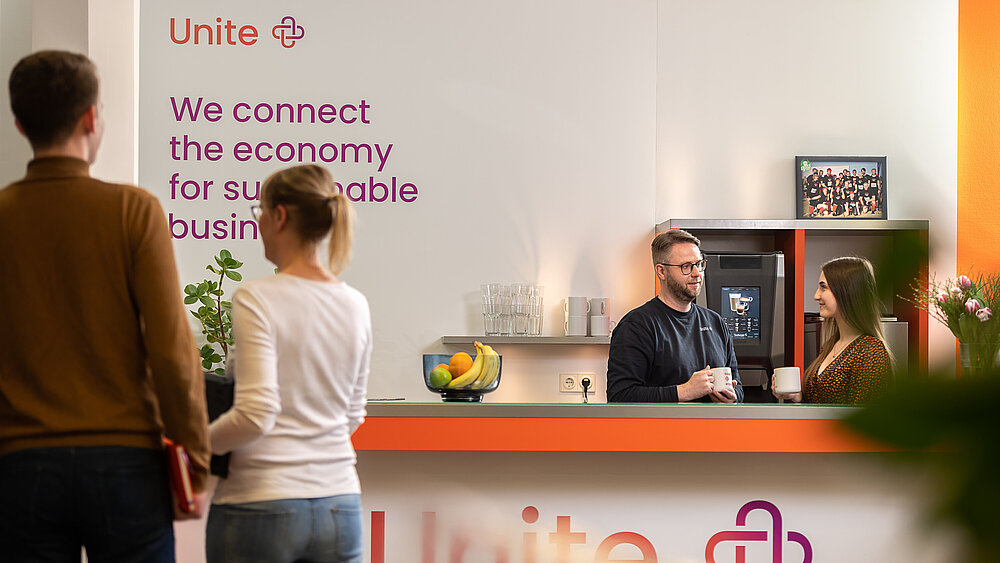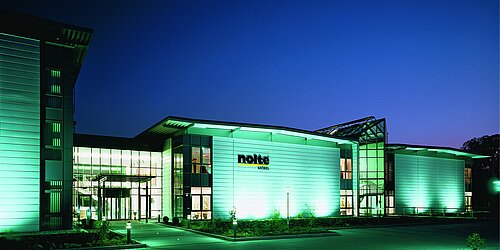A strong B2B foundation
In 2000, the founders of Unite, at that time Mercateo, had a simple goal: to create a marketplace that would shake up e-procurement and e-commerce. They envisioned a simple and transparent system that would permanently change centralized purchasing for SMEs. Their idea: a web-based platform that unites a large network of suppliers with their customers. They named it Mercateo, which means marketplace. 20 years later, in 2021, the Leipzig-based company merged its two business units - the Mercateo B2B marketplace and the Unite network - into a new brand: Unite.
The original idea of the founders was to set up a marketplace on the Internet without own stock, where C-parts and indirect materials are sold. The advantage for the customers: They can cover all their business needs through a single platform. Advantage for suppliers and manufacturers: An additional, spatially unlimited distribution channel is available to them. Moreover, thanks to electronic handling, both sides save on transaction and process costs. The idea has now become reality.
For more than 20 years now, hundreds of thousands of active business customers use a range of millions of articles from hundreds of suppliers. One of the challenges was that many suppliers offer identical articles. These duplicates had to be identified in order to produce clean results from a mass of unstructured data. This could only be done by standardizing manufacturer numbers, order units, item descriptions and numbers, EANs, etc. Identical items could thus be identified. But how to proceed with similar items, for instance from another manufacturer?
In order for purchasers to keep an overview of a search result of thousands of different copy papers, the properties of a product are extracted from the content by Mercateo's unique search tool and are presented to the client as a filter to restrict or refine the search. These little "programs", so-called Mercateo keyword XML (MKX), include all relevant information required to create the search result, the categorization and linking to broader and narrower terms. The collaboration with major customers, however, required a uniform standard for comparison of evaluations. Therefore, the keywords were extended by the ECLASS numbers. This addition allows customers to consistently produce their own procurement profile across all suppliers with ECLASS. Thus, the purchase negotiations can be focused on the key categories. It does, however, not only benefit large corporations. Medium-sized companies too can now use ECLASS via Mercateo, for example to find out for what product range a framework agreement is really worthwhile.
Readability: Generation of uniform procurement profiles across all suppliers
Liability: Compliance with legal requirements, public procurement and warranty regulations
Manageability: Sorting management allows for displaying and hiding assortments according to ECLASS categories
Different procurement processes: Hazardous substances and environmental labels
Pricing: Specifying different tax rates and customs fees
Internationality: Multilingualism, customs tariff codes
Electronic catalogues: Categorization of ECLASS facilitates the creation of electronic catalogues, for example about BMEcat
Browse Mercateo's product range: www.mercateo.com
About Unite: unite.eu



